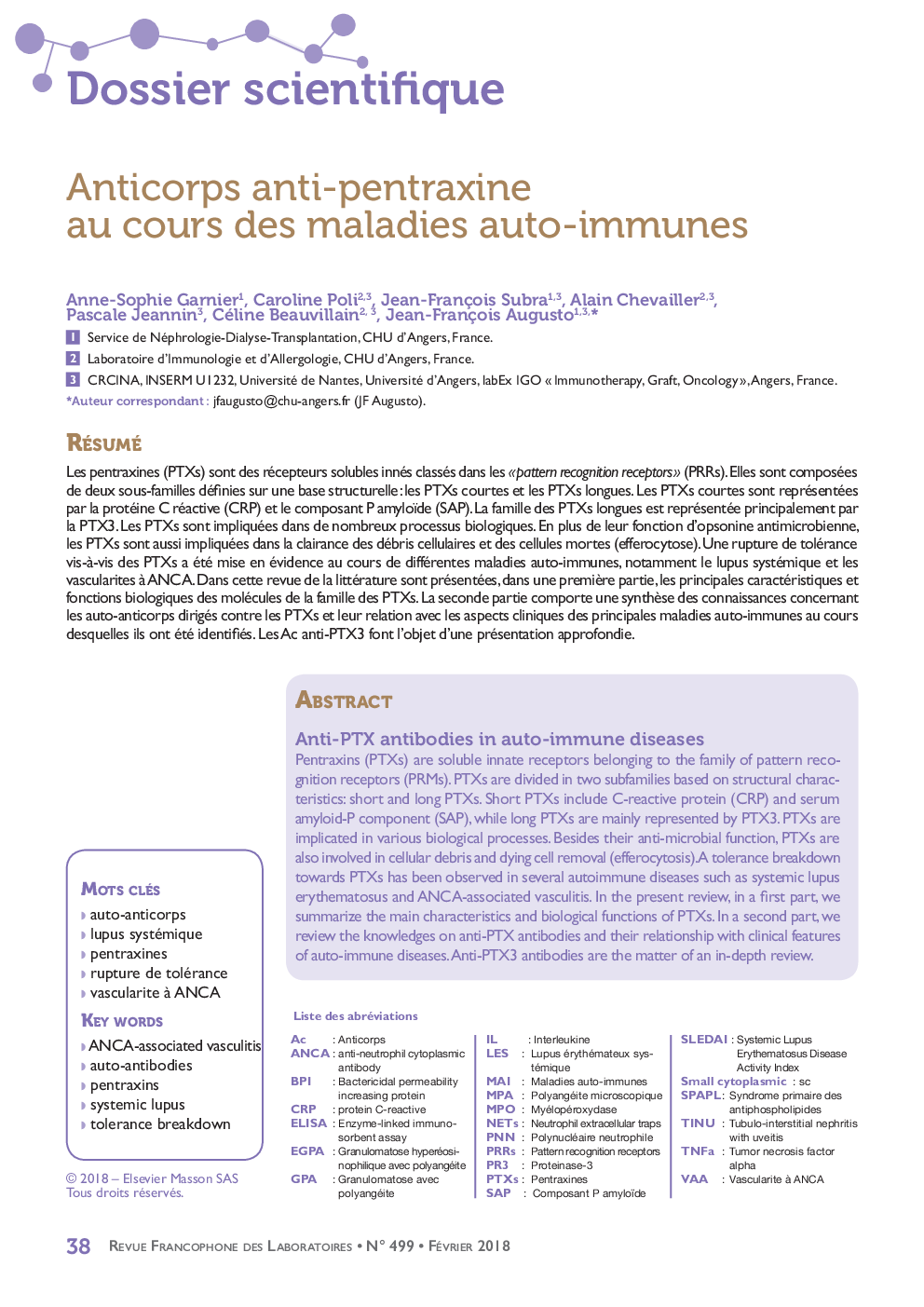| Article ID | Journal | Published Year | Pages | File Type |
|---|---|---|---|---|
| 7645120 | Revue Francophone des Laboratoires | 2018 | 9 Pages |
Abstract
Pentraxins (PTXs) are soluble innate receptors belonging to the family of pattern recognition receptors (PRMs). PTXs are divided in two subfamilies based on structural characteristics: short and long PTXs. Short PTXs include C-reactive protein (CRP) and serum amyloid-P component (SAP), while long PTXs are mainly represented by PTX3. PTXs are implicated in various biological processes. Besides their anti-microbial function, PTXs are also involved in cellular debris and dying cell removal (efferocytosis). A tolerance breakdown towards PTXs has been observed in several autoimmune diseases such as systemic lupus erythematosus and ANCA-associated vasculitis. In the present review, in a first part, we summarize the main characteristics and biological functions of PTXs. In a second part, we review the knowledges on anti-PTX antibodies and their relationship with clinical features of auto-immune diseases. Anti-PTX3 antibodies are the matter of an in-depth review.
Keywords
MPAEGPAANCAPRRsSLEDAIPR3GPABPIPNNTNFaVAASyndrome primaire des antiphospholipidesMyeloperoxydaseLESPTXsBactericidal permeability increasing proteinPolynucléaire neutrophileMPONETsanti-neutrophil cytoplasmic antibodyAuto-anticorpsinterleukineMAIMaladies auto-immunesELISAEnzyme-linked immunosorbent assayneutrophil extracellular trapstumor necrosis factor alphaTolerance breakdownAuto-antibodiessystemic lupus erythematosus disease activity indexSAPLupus érythémateux systémiqueSystemic lupusLupus systémiqueANCA-associated vasculitisAnticorpsCRPproteinase-3Polyangéite microscopiquePentraxinsGranulomatose avec polyangéitepattern recognition receptors
Related Topics
Physical Sciences and Engineering
Chemistry
Analytical Chemistry
Authors
Anne-Sophie Garnier, Caroline Poli, Jean-François Subra, Alain Chevailler, Pascale Jeannin, Céline Beauvillain, Jean-François Augusto,
